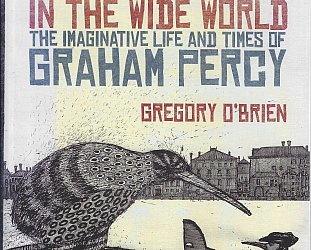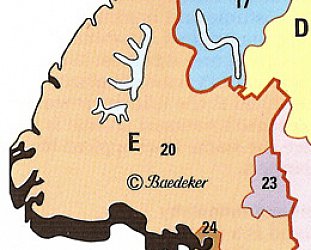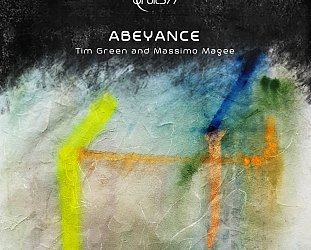Graham Reid | | 3 min read

Had 19th-century missionary Thomas Kendall remained in England he may have enjoyed a rewarding, if undramatic, career ministering to a modest parish.
He certainly would have had a less demanding and troubled life than that which unfolded when he arrived in New Zealand in June 1814 with his wife and five children.
Kendall was 36 and an enthusiastic advocate for the Anglican Church Missionary Society, but was emotionally and financially ill-equipped for the work he had chosen to undertake. In subsequent years he was plagued by self-doubt, manipulated by crafty Maori chiefs (notably Hongi Hika), and his wife Jane was unfaithful with their servant, Richard Stockwell.
Kendall fell out with his colleagues and the Reverend Samuel Marsden, and his greatest achievement -- a Maori grammar -- was criticised. Yet for all those reasons, and because he existed at the interface of different cultural practice and religious beliefs, his is a fascinating story.
Author and University of Auckland history professor Binney traversed Kendall's life in 1968 and this expanded, much annotated and thoroughly readable biography of his life and times takes into account new information of Kendall and the period.
Thomas Kendall was a rare figure who inhabited both Pakeha and Maori worlds and grappled with their contradictory spiritual compasses. He quickly learned to speak Maori, became friends with many round the Bay of Islands where he lived, and had an affair with a young Maori woman, which, among other things, was to be his undoing.
Kendall was born into a pious farming family in Lincolnshire, left home at 14 to live with a solicitor's family, married at 25, and two years later while in London to sell a crop of hops, heard an evangelical sermon that inspired him. He returned home the next day, quickly put his affairs in order and returned to London with his wife and young family to devote the next seven years to teaching in Sunday school.
On reading of the deplorable plight of heathens, he resolved to become a missionary, requesting a posting to New Zealand. But missionaries were also settlers and expected to possess some practical skills. Kendall conspicuously had none. He was permitted to migrate as a schoolteacher who would familiarise himself with the native language and write a Maori grammar.
In New Zealand he enthusiastically applied himself to civilising the heathen in an attempt to save their souls. What he discovered was a race he actually quite liked. Maori may have been -- according to Kendall's faith -- deplorably corrupt, but they were intelligent (and therefore able to be converted), and in Hongi Hika he found a man of great personal charm.
All of this -- plus arguments within the small colony of settlers -- led to Kendall's undoing. He engaged in the trade of muskets in order to survive and was manipulated into this by Hongi Hika and others who effectively controlled him.
Kendall argued that free trade with Maori was not prevented by CMS regulations and would lead to a better relationship, allowing for conversions. Marsden and others objected and a dispute, increasingly personal and vindictive, developed. Kendall's school failed, he drank heavily, his personal life fell apart and he went through various crises of faith.
Yet he was among the first, because of his study of te reo, to recognise the complex inter-relationship of language and spiritual identity in the Maori world. His grammar, worked on at Cambridge with Hongi Hika and others, was published in 1820 and while flawed, was a considerable improvement on the few others available at the time.
But it was criticised and Kendall returned to New Zealand as a man intellectually disappointed, increasingly isolated by his frustration and resentment, and held in suspicion for his friendship with many Maori.
Disputes with Marsden and other settlers continued, his affair with 17-year old Tungaroa was the subject of much gossip (she was pledged to a man of high birth who tried to exact revenge), and Kendall's life progressively unravelled. He became more and more itinerant, and morally troubled by the affair.
His death by drowning in Australia in 1832 was the unhappy coda to a life in which little was enjoyed and much had to be endured.
Yet while Kendall was spiritually disillusioned and impotent, Binney's dense but lively account of the content and context of his life allows a penetrating insight into the world of New Zealand's early colonial period. And particularly the tragic, isolated life of a man trapped between two worlds, the unhappy occupant of neither.







post a comment